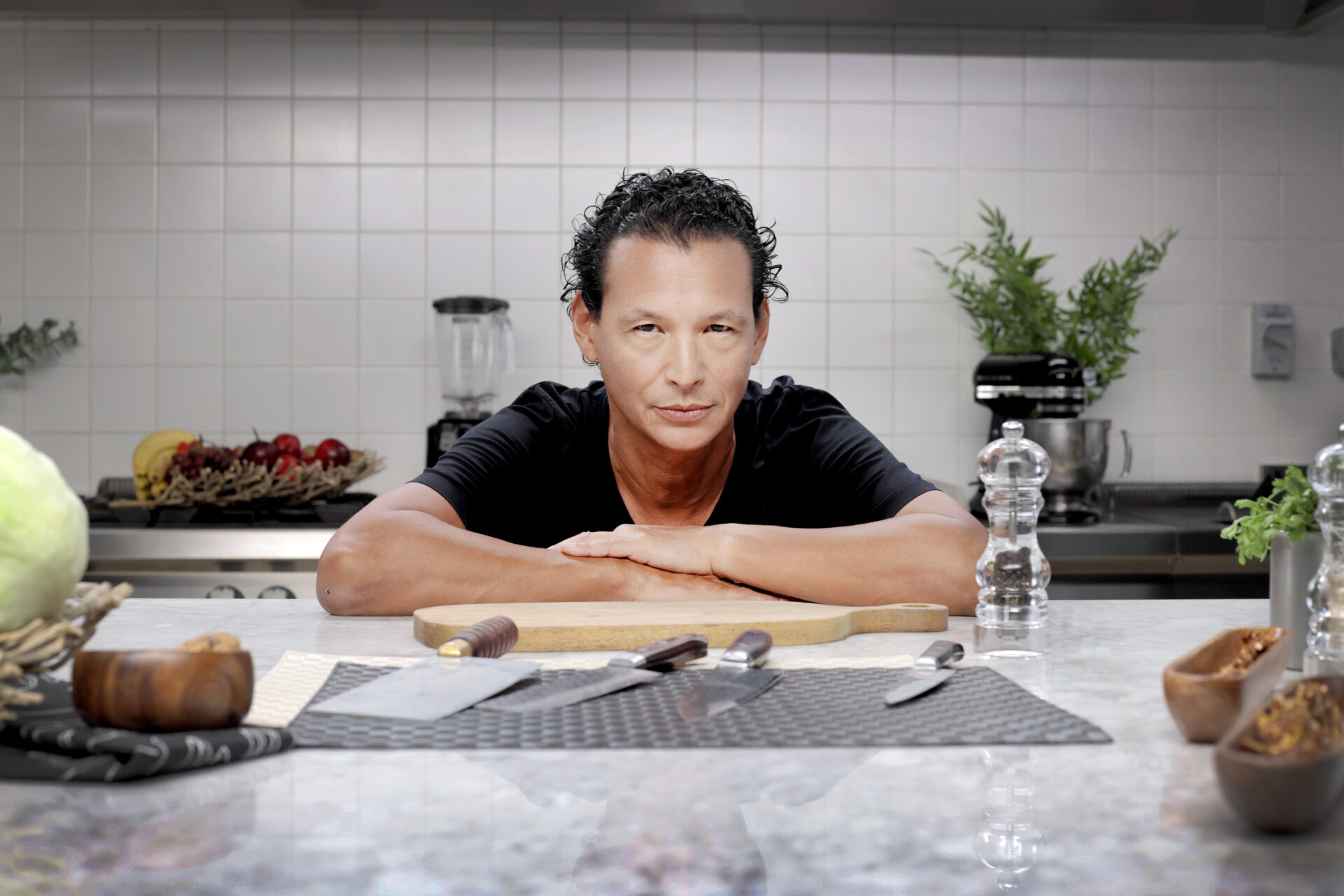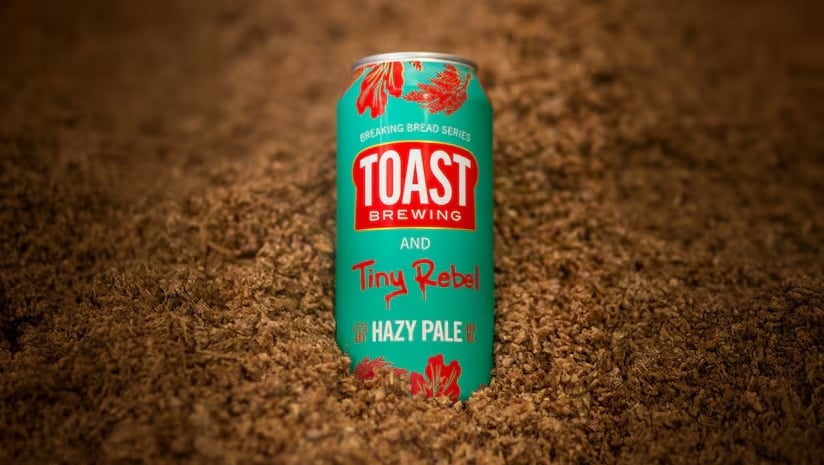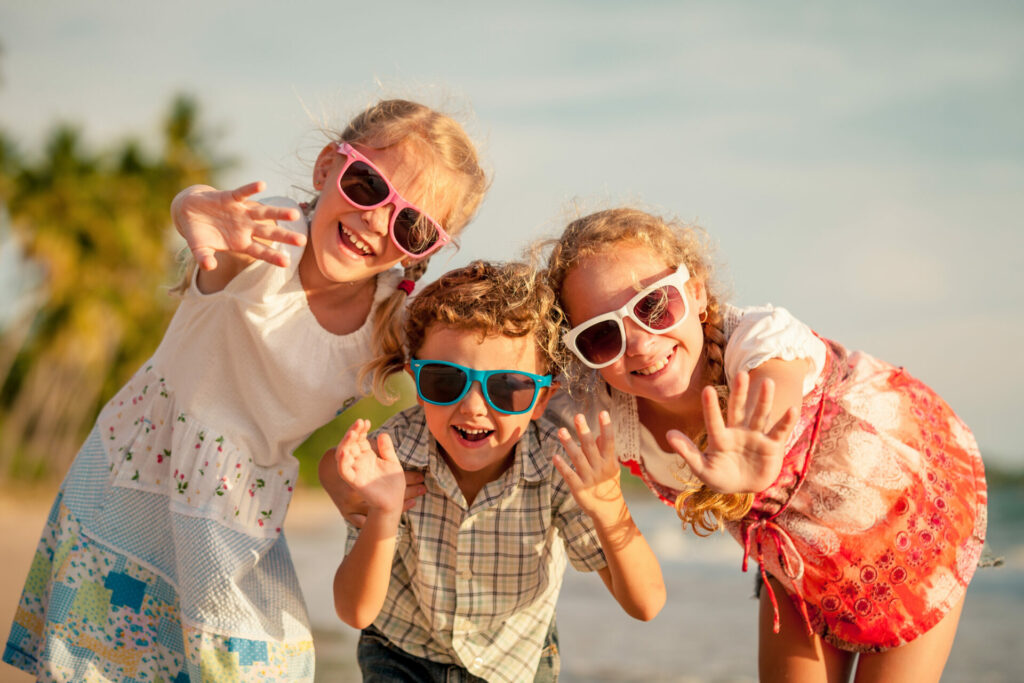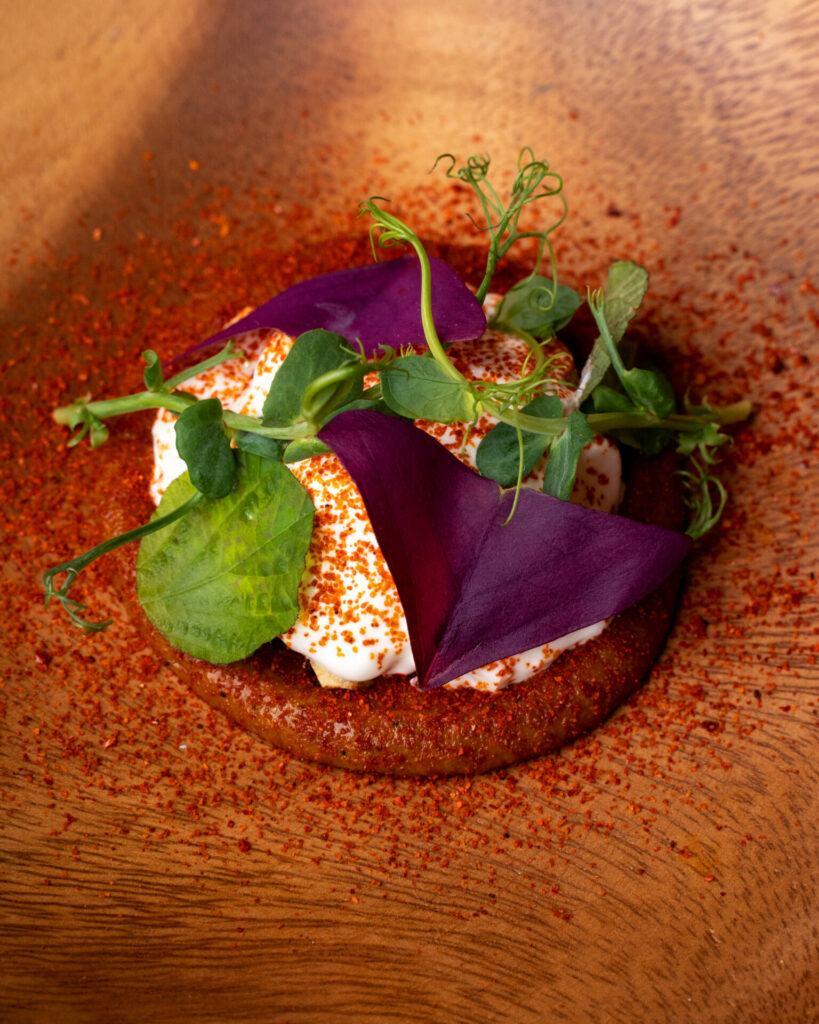He’s charming, magnetic and witty. Oh and he’s not bad with a whisk or a knife either. Now entering its seventh season and nominated for an international Emmy award, celebrity chef Bobby Chinn is one of the reasons Top Chef Middle East – the American version from NBC Universal – is one of the hottest shows on our TVs.
With his huge smile, culinary expertise and one liners – he was once an accomplished stand up comedian – it’s easy to see why viewers can’t get enough of the New Zealand-born, British educated, part Egyptian Chinese chef serving up kind appraisals and clinical critiques on the culinary contest which airs on MBC across the Middle East and North Africa (MENA) region.
He has cooked for everyone who’s anyone, including the Clintons and Bob Dylan, has owned two award-winning restaurants in Vietnam – Bobby Chinn in Hanoi and Bobby Chinn Saigon in Ho Chi Minh – where he spent 22 years developing modern Vietnamese cuisine – and a popular Soho restaurant in London, House of Hô. But the internationally acclaimed chef, restaurateur and TV host has still found time to write recipe books, one of which‘Wild Wild East: Recipes & Stories from Vietnam’ was first published in 2007 and was immediately shortlisted for ‘Best Asian Cookbook’ in the 2007 Gourmand International World Cookbook Awards. Re-printed under the new title ‘Bobby Chinn’s Vietnamese Food’ in 2013, and now in its 3rd edition, this is simultaneously an authentic guide to Vietnamese food and a journal of Bobby Chinn’s roller- coaster adventures in Vietnam. Bobby is currently working on a new book.
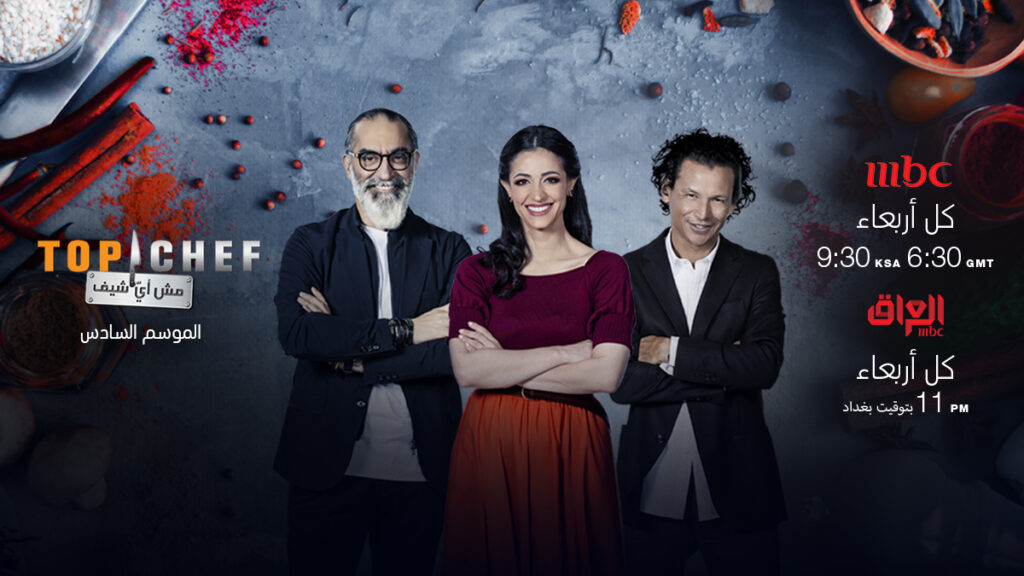
Behind his enigmatic and engaging personality, Bobby has a serious mission: to help as many people as he can. As a philanthropist he supports multiple organisations including Vietnam’s Blue Dragon that help formerly trafficked children escape abuse by providing education and skills development programs to support their future employment prospects.
Now looking to promote ethically-sourced and environmentally-sustainable produce, the celebrity chef also wants to educate us all about food waste and the environmental impact of our culinary choices. The Ethicalist caught up with this incredible chef, man and humanitarian while he was in Dubai for a quick fire Q & A session on all things food.
The Ethicalist: Top Chef Middle East has been a huge hit in the region since 2016. How did your journey with the series begin?
Bobby Chinn: ‘When I met [Franc Roddam], he told me that he created films but when I asked him to name one he said I would never have have heard of it. I was shocked when he told me it was Quadrophenia and that’s when I realised the man deserved a bottle of wine, versus a glass so I invited him for dinner.
That’s when he started to tell me about his new show called MasterChef, but I said, ‘Oh, no. I’m Egyptian-Chinese. I’ve had the Mickey taken out of me my entire life. I don’t like to be judged, and I don’t like to judge anybody.’ Despite my reservations, I decided to give Top Chef a go so I gave up all my other TV shows, and then after Season One (2016) I started to hesitate again and thought ‘I can’t do any more. I’ve got to quit.’
So, I told the executive producer : ‘I can’t do this job. I can hardly speak Arabic, you’re only getting 25 per cent of what I could do, and I feel fraudulent by not being the best I can be.’ And he said: “No, no, Habibi, it’s fine,” and then Season 2 came and the rest is history.
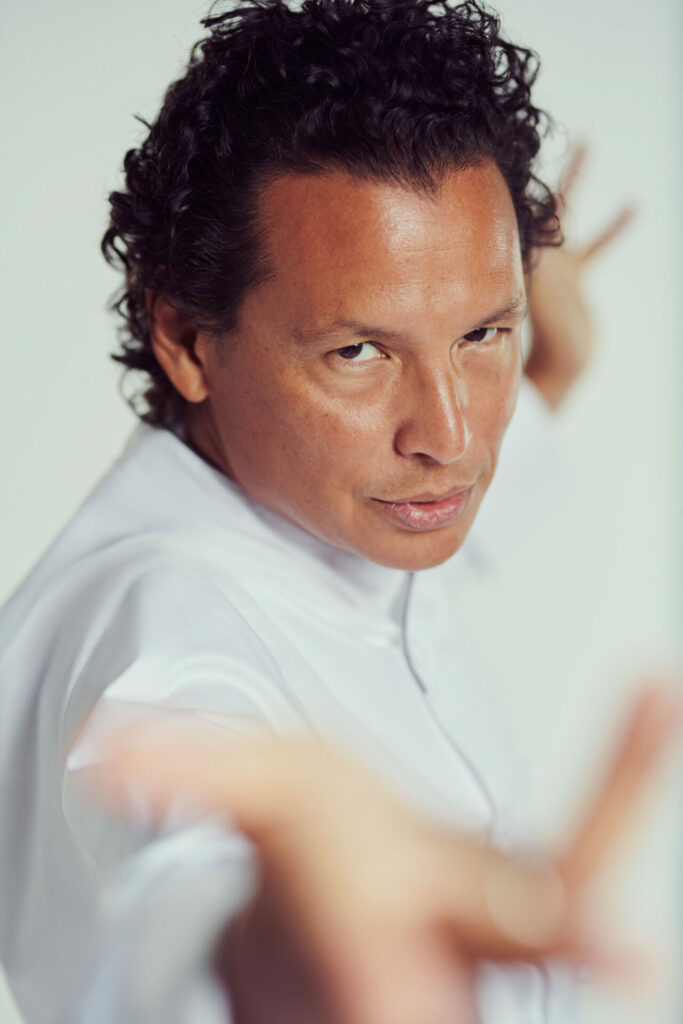
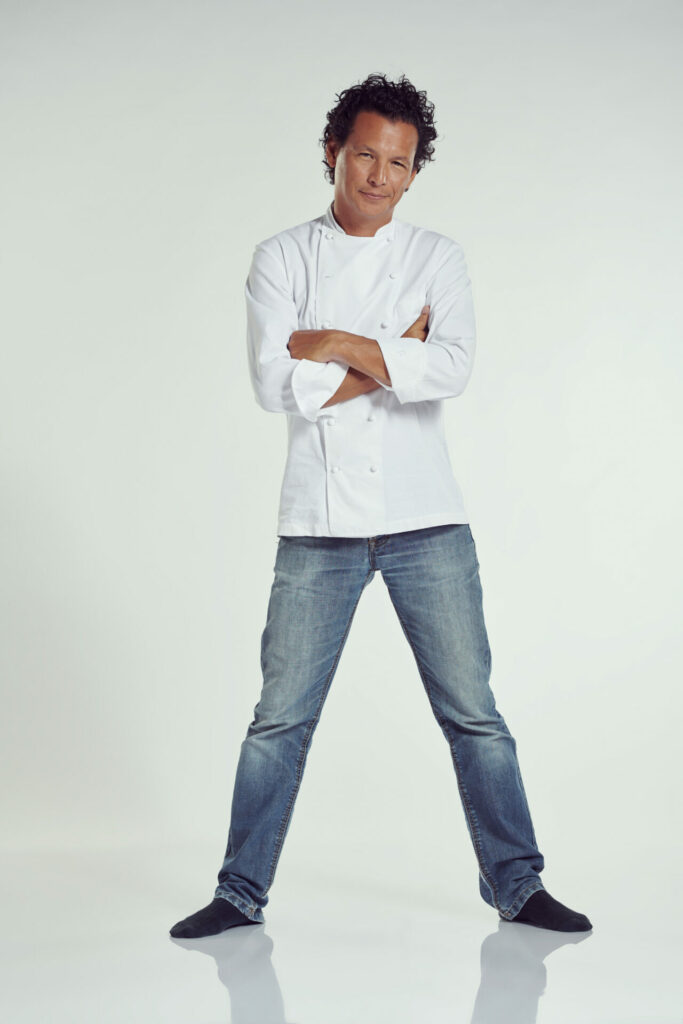
TE: You’ve been an advocate for sustainable food for some time now, including being a WWF ambassador for Sustainable Fishing. Is it hard balancing being a celebrity chef and a sustainable food champion?
BC: In my personal life I don’t eat fish and I don’t eat animal protein, but I do it professionally on television because I think food brings people together. It shouldn’t separate us. I think that I can state my point and I can tell you all the reasons why you shouldn’t eat animal protein but as a chef being able to cook [meat] well is a skill by which so much of your culinary finesse is measured. Do I want to? No, and that’s a sad state of affairs but I think that people still look at vegetarians and vegans as a bit of a joke.
I eat animal protein on the show because it’s a big part of the job. I’ll taste it because I’m a chef. And as a judge on Top Chef Middle East I must know what good quality foods are. Nonetheless I am still making a statement that this is what we should be doing because I feel it’s my obligation to state it.
‘We’re losing our culinary identity. And we’re all about molecular nonsense and tweezers, foam and gels. That’s great, fantastic, excellent, but I want real food’
TE: And what should we all be doing to change the unsustainable status quo of our eating habits?
BC: We should be eating local produce and supporting local farmers. We should be getting people to cook again for their own personal needs because food is poison for one and medicine for another. We need to look at food that way. We should be eating for the planet. Farmers should dictate the menus. It shouldn’t be a chef saying, ‘I need this, this, and this,’ it should be: ‘No, this is what we’re growing – for flavour, not just for commercial interest.’
There was an opportunity once where we could have grown for flavour and nutrition, but we grew for profitability, so that our system can get us the greatest products, anywhere in the world, at any time. But really you can’t get great, authentic cuisine anymore and certainly not in the places that are supposed to have it. We’re losing our culinary identity. And we’re all about molecular nonsense and tweezers, foam and gels. That’s great, fantastic, excellent, but I want real food.
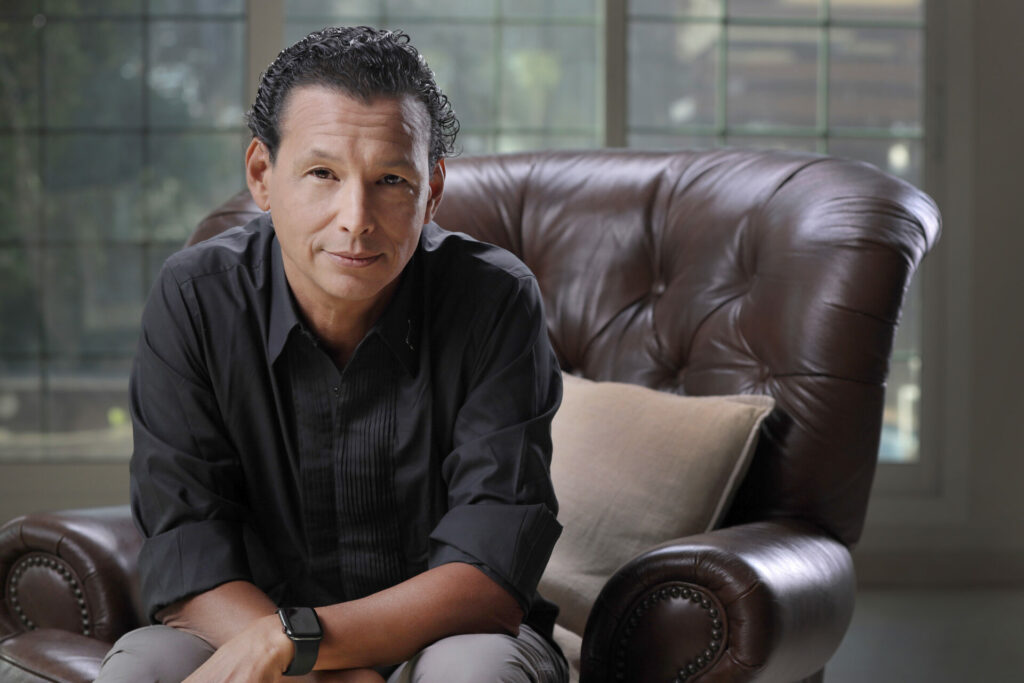
TE: We could reduce global greenhouse gasses by as much as 70 per cent by 2050 if we all went plant-based. That’s not going to happen, so what are your thoughts on cell-based meats as a replacement for traditional animal farming?
Singapore was the first country to authorise cell-based protein such as chicken and I feel this is for the next generation but personally I’m already saying no. I’m not an advocate of alternative protein that looks like meat, tastes like meat, but is not meat. Maybe we shouldn’t be eating meat full stop.
All animal protein has casein [a protein found in dairy products] and if you look at The China Study, from Dr Colin Campbell, casein promotes tumours. The study shows that a diet based on 20 per cent casein versus 5 per cent casein can put you at a higher risk of developing tumours.
In the study they tested lab rats, putting 50 per cent on a 20 per cent casein diet, and the other half on a 5 per cent casein diet, and those that were on the 20 per cent developed tumours. Then they put them on 5 per cent casein and they didn’t develop any new tumours. They then increased it back to 20 per cent and like a light switch, boom, they got the tumours back. We shouldn’t be eating animals.
TE: Do you think those statistics will change the minds of millions of carnivores around the world?
Is eating meat really that important to people? When I was a kid – and I didn’t come from a poor family – we didn’t eat meat every day. We ate it once a week on Friday or at the weekend. In London back then you couldn’t get a decent hamburger anywhere, only maybe at The Hard Rock Café. I’d get the same rubbish beef burger in a restaurant that I could get at boarding school. That was the situation. We used to be embarrassed to say we ate a hamburger, because it’s not exactly the greatest cut. It’s the chuck. It’s 30 per cent fat. But now suddenly, burgers are everywhere, it’s gone gourmet and everyone’s measuring who’s got the best burger.
Burgers have turned into a ridiculously expensive dish. And we think it’s sexy but it’s not so sexy when you see how it’s grown, the people that work in the meat industry. It’s terrible but people don’t know it because they don’t see it’
And now we can use Wagyu, we can use Kobe, we can use lobster, and make it surf and turf, we can slice fresh truffles on it, and we’ve turned it into a ridiculously expensive dish. And we think it’s sexy. But it’s not so sexy when you see how it’s grown, the people that work in the meat industry. It’s terrible but people don’t know it because they don’t see it,
TE: How did you come up with the concept for the Bobby Chinn zero-waste dinner you held at the Emirates Literature Festival in Dubai last month?
BC: They asked me what I was going to cook and that it would be in the presence of the Minister of Climate Change and the Environment, so I knew I wasn’t going to create an animal-based dish and, quite frankly, I’m tired of working with a corpse. So, I came up with an idea to use something I had never cooked before: Japanese mushroom risotto using kombu, a type of seaweed stock that doesn’t need to be boiled so there’s no energy requirement. Seaweed is also a superfood for the planet. It oxygenates the ocean, it can be used as fertiliser, and it can reduce methane gas in animal feed by 85 per cent.
I teamed it with mushrooms as the protein because they do amazing things. You can increase the dose of vitamin D by slicing fresh mushrooms and leaving them in the sun. Like us, they absorb vitamin D through the skin. Genius little things.
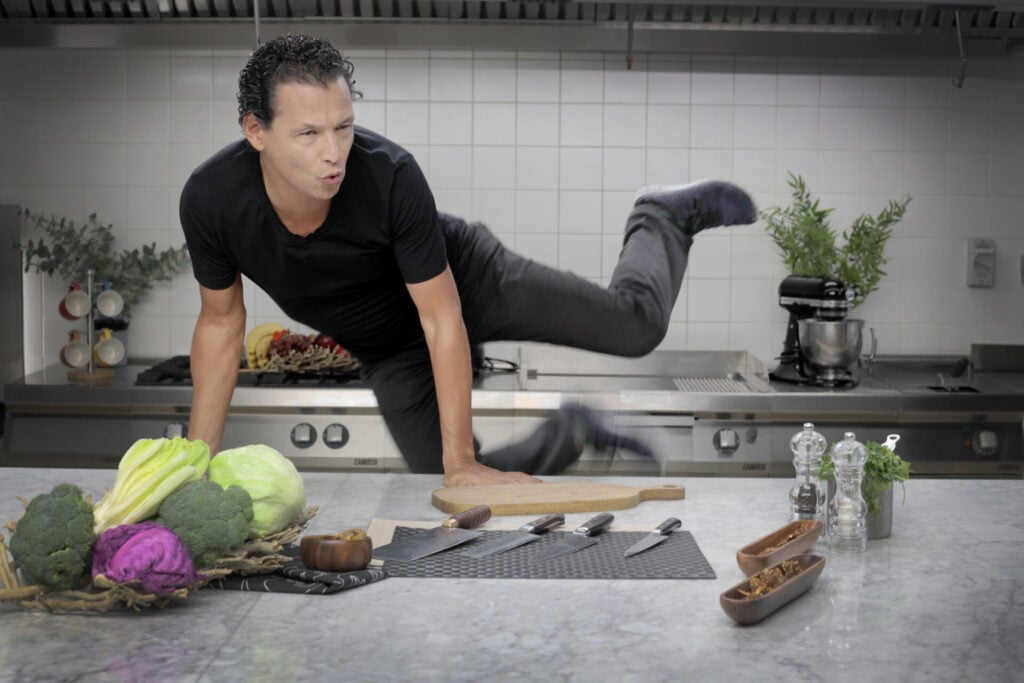
TE: You’re an advocate for zero waste. How did that come about?
BC: When I look at food I think about the life of that ingredient because a good kitchen has no waste. Take fish for example: you can get fillets, you can make a fish head curry, you can turn it into tartare, a ground burger and you can make fish stock out of the bones and use the skin for spring rolls. That’s zero waste.
I’m now an ambassador for Urban Eats, a campaign by the Resilient Cities Network, who are trying to mobilise a network of around 100 cities to create a more circular food system by reducing food waste and improving food security.
Back in the day the Vietnamese had no waste. There was no garbage. But once the country started to become more affluent, the locals started throwing stuff away. And I would say to them: ‘Ten years ago you didn’t have anything. Now you’re throwing it away?’ And they would reply: ‘Why do you want to remind us of our past?’. I always tell them: ‘Because it’s going to dictate your future. That’s why.’
As a restaurateur, if you can reduce your waste, you can increase your profits. We serve white bean hummus but after three days you have to convert it into something else or it turns sour. So, I crack a couple of eggs in, throw in some flour, and create a white bean pancake and we give it away.
TE: Who are your food heroes?
She’s not even a chef. Dani Nierenberg from Food Tank (a non profit organisation that highlights environmentally, socially, and economically sustainable ways of alleviating hunger, obesity, and poverty) who sheds light on important subject matters. She founded it with Bernie Pollack and she educates me and others with her podcast on things that I think that everyone should know about with respect to food, such as food justice, and the history of food.
For example, we always talk about the Mediterranean diet being very healthy for us. Well, there’s a lot of affluent people in the Mediterranean that can fund that research. Does anyone do it for Africa? Sometimes we need a person that’s not a chef to sit there and point stuff out to us, because how do we know otherwise?
To learn more about Chef Bobby Chinn you can visit his website here.

